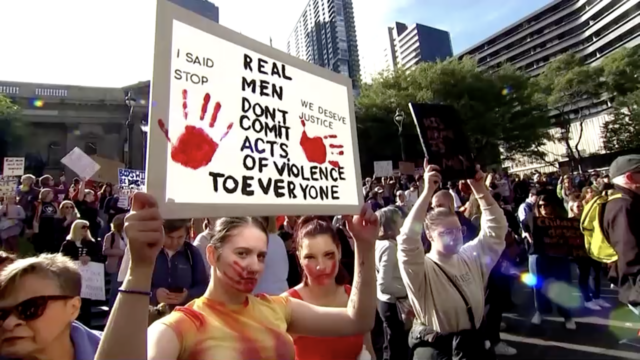Australia will spend almost $600 million on payments for those fleeing domestic violence and introduce new measures to police pornography and violence on the internet in response to what the government is calling a ‘national crisis’ of gendered violence.
Thousands took to the streets over the weekend to protest violence against women, which the government says has killed a woman every four days this year. Five women were killed during a mass stabbing in April, the same month a high-profile defamation case concluded a rape took place in parliament.
Speaking after an emergency meeting of state and federal leaders to address the issue, Prime Minister Anthony Albanese announced A$925.2 million ($600 million) to make permanent a programme of financial support for those escaping domestic violence.
“Today is about who we are as a nation and as a society,” he said. “This is an issue for the whole of society, not just for governments. It’s an issue for civil society, it’s an issue for the media, it’s an issue for all of us.”
Australia will also introduce legislation to ban the creation and non-consensual distribution of deepfake pornography, where people digitally alter pornographic images into the likeness of someone else.
Thirty four women were killed by an intimate partner in Australia in the year ending June 30, a 28% jump from the previous year, despite only a 4% rise in overall homicides.
Attacking “toxic male extremist” views online, Albanese also announced a range of measures to police porn on the internet and promote healthier attitudes towards women.
A A$6.5 million pilot will test ways to stop children accessing inappropriate content online with the results informing new rules for internet companies being developed by the online safety regulator. But in a sign of how difficult implementation is likely to be, the e-Safety Commissioner is already embroiled in a court battle to have social media platform X remove posts showing an Australian bishop being stabbed during a sermon. Owner Elon Musk has pledged to fight the move, which he called censorship.
Albanese said his government did not underestimate how difficult policing content on the internet would be but “the online players need to understand exactly what the consequences are of a free for all online”.
With inputs from Reuters





